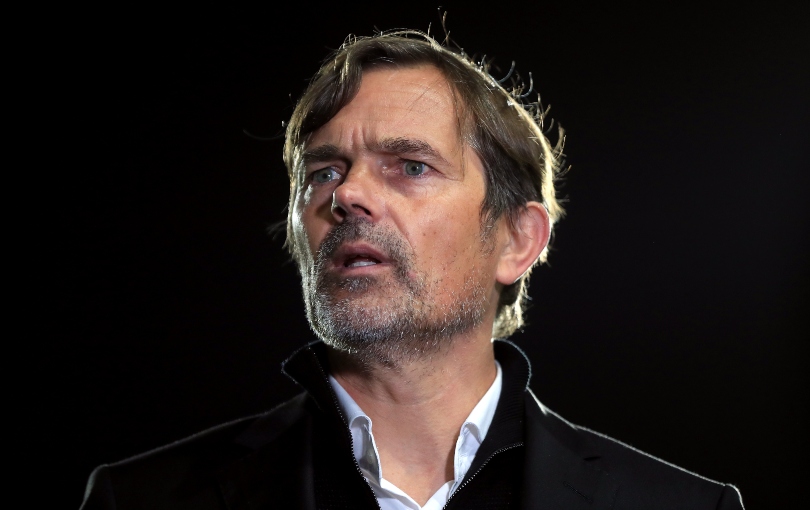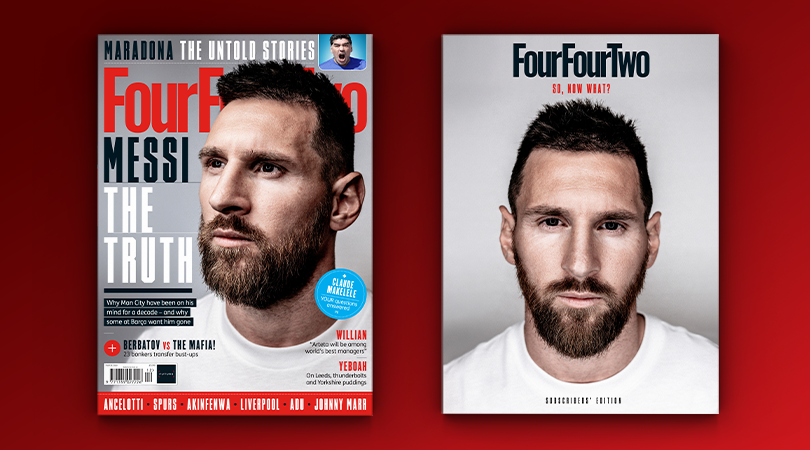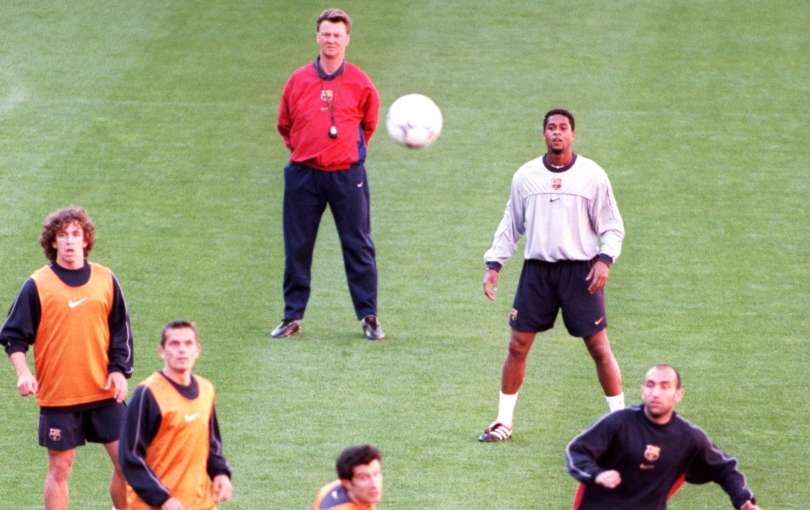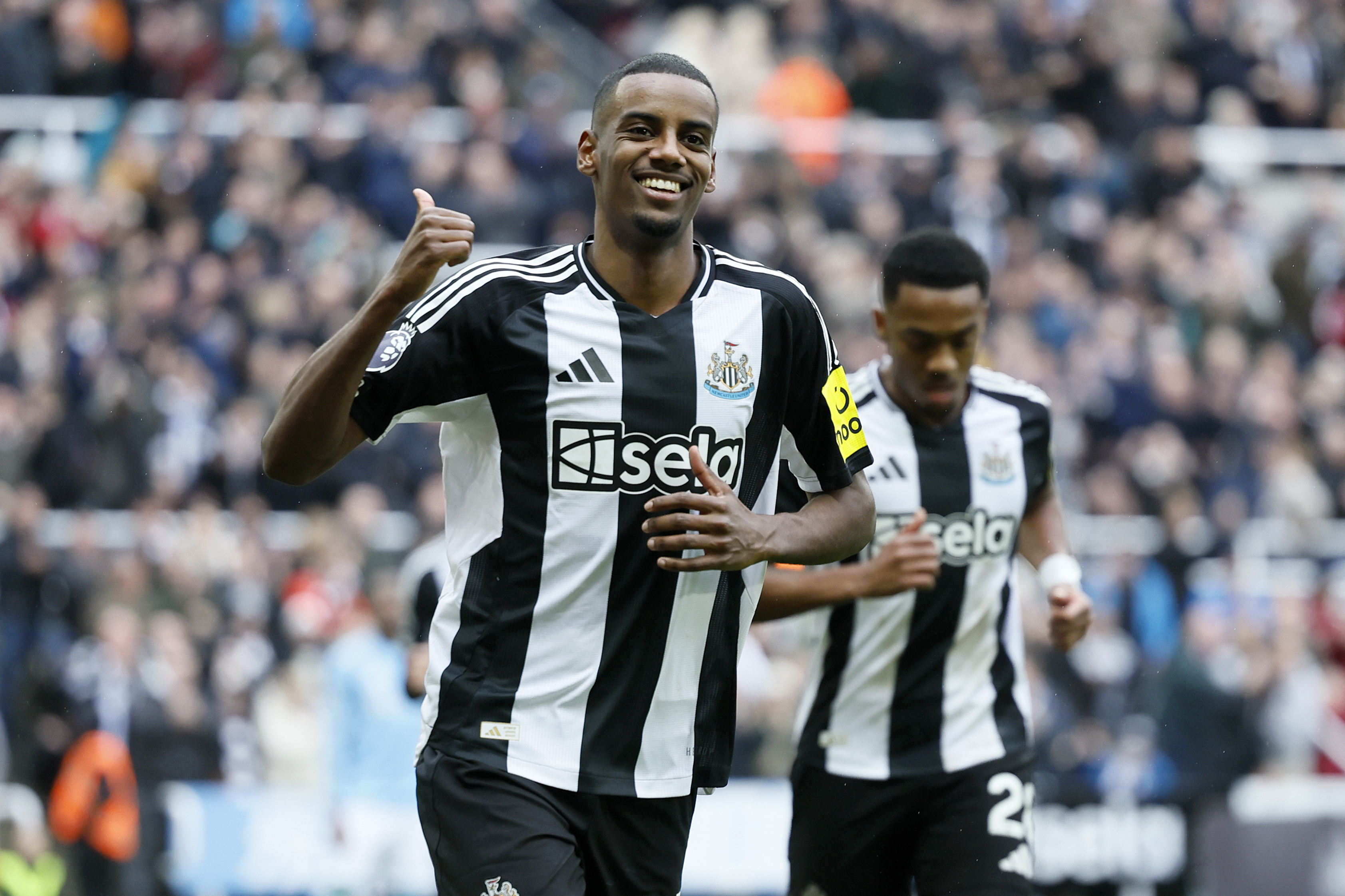Phillip Cocu's Derby departure signals the end of Van Gaalism in English football
From the thrilling Ajax team of the 1990s, Louis van Gaal's managerial philosophy eventually became about pointless possession – a legacy that endured with Phillip Cocu at Derby

Wayne Rooney finds himself in a new position, in more ways than one. Derby County are bottom of the Championship, the lowest place Rooney has ever found himself in the league standings. He is interim charge, along with Liam Rosenior, perhaps the start of a managerial career many envisaged when he became player-coach at Pride Park.
If the spectre of Rooney loomed over Phillip Cocu throughout his tenure – news of the former England captain’s impending move broke just before the Dutchman’s first game – his profile means the sacked manager is immediately overshadowed.
And yet perhaps he should not be. There is a common denominator in the playing days of Cocu and Rooney, men with a century of caps and a host of medals apiece: Louis van Gaal. And while Rooney’s time playing for Van Gaal is rather more recent, Cocu’s departure may mark the end of Van Gaalism in English football.

Three reigns encapsulate its shortcomings: Van Gaal’s at Manchester United, Cocu’s at Derby and Frank de Boer’s at Crystal Palace.
Or, to be more precise, the fault-lines in the modern Van Gaalism; the seductive, attacking brand of football played by Ajax in the 1990s remains so admirable that Marcelo Bielsa was still marvelling over it recently.
And some of Van Gaal’s better traits persisted: the faith in youth that was long a flagship policy continued at Old Trafford and was echoed by Cocu’s willingness to give Max Lowe, Max Bird, Jason Knight and Louie Sibley chances at Pride Park. His legacy may yet be better than Derby’s current position.
Get FourFourTwo Newsletter
The best features, fun and footballing quizzes, straight to your inbox every week.
But somewhere along the line Van Gaalism became warped. He insisted it was still attacking football, but the evidence of the eye was rather different. Passing lacked purpose, possession for possession’s sake became tedious and the goals dried up. Perhaps it was too structured and slow to be creative.
Factor in the cultural misunderstandings with English football, and its traditional emphasis on energy, urgency and action, and it became a particularly poor fit. Van Gaal and De Boer were more dogmatic in their beliefs than the more amiable Cocu, but a recurring theme is a lack of goals.
De Boer’s brief, ill-fated spell at Crystal Palace brought none in the Premier League, even though his side had more of the ball in three of their four games. Arguably he tried to change too much too quickly and, under Roy Hodgson, Palace reverted to being a team who had less possession and more of a threat on the break.
Van Gaal’s United bottomed out with 49 league goals – just one more than Sunderland – in 2015/16. Now Cocu’s Derby rank 10th for possession and seventh for passing accuracy in the Championship this season but have a solitary goal in open play. Last season, 19 other teams had more shots in the division. This season, Derby have two goals in eight games at Pride Park, despite having more of the ball in six of them.
Converting time on the ball to opportunities and goals is a familiar problem for this particular school of Dutch thought. And while Cocu’s time with Van Gaal, who bought him for Barcelona and managed him in two spells at the Nou Camp, either side of an unsuccessful stint with Holland, is the best part of 20 years ago and came when the older man was associated with more progressive football, he evolved with a mentor. Van Gaal’s style of play has mutated and it has been mirrored by the approach of some of his trusted lieutenants on the pitch. It has produced a damaging dullness.

In a sense, Cocu was unfortunate at Derby. He inherited a team stripped of its three best players, in Mason Mount, Harry Wilson and Fikayo Tomori. Yet a 10th-place finish was flattering last season, with a surge left until it was unlikely they would make the play-offs. Derby’s current plight means he can have no complaints about his departure.
But it is not just the end of an individual. English football has been revolutionised and improved by coaching imports, injecting ideas from abroad. Holland, long more tactically advanced, has felt an exception when French, Spanish, German and Italian managers have won the Premier League but the indirect influence of Johan Cruyff has filtered down to Pep Guardiola and perhaps on to Mikel Arteta. But Van Gaal arrived too late and achieved too little. And while one of his old assistants, Jose Mourinho, is flourishing at Tottenham, his brand of football scarcely echoes the Dutchman’s. So perhaps Van Gaalism in England died with Cocu. And few will mourn that.
While you’re here, subscribe to FourFourTwo and save 48% – available until Christmas. It’s the perfect gift idea for anybody who loves football (including yourself)!
NOW READ...
RANKED The 10 best England sides ever
RE-RELEASE Mitre Ultimax has been re-released on the iconic football's 25th birthday
GUIDE Premier League live streams: How to watch every game this weekend, from anywhere in the world
Richard Jolly also writes for the National, the Guardian, the Observer, the Straits Times, the Independent, Sporting Life, Football 365 and the Blizzard. He has written for the FourFourTwo website since 2018 and for the magazine in the 1990s and the 2020s, but not in between. He has covered 1500+ games and remembers a disturbing number of the 0-0 draws.

